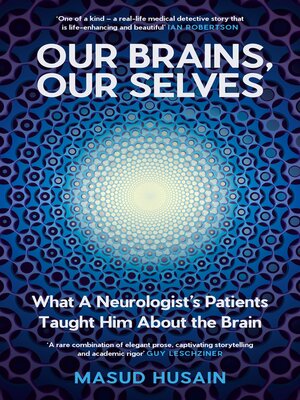Our Brains, Our Selves
ebook ∣ What a Neurologist's Patients Taught Him About the Brain
By Masud Husain

Sign up to save your library
With an OverDrive account, you can save your favorite libraries for at-a-glance information about availability. Find out more about OverDrive accounts.
Find this title in Libby, the library reading app by OverDrive.



Search for a digital library with this title
Title found at these libraries:
| Library Name | Distance |
|---|---|
| Loading... |
SHORTLISTED FOR THE ROYAL SOCIETY TRIVEDI SCIENCE BOOK PRIZE
A FINANCIAL TIMES BEST SCIENCE BOOK OF SUMMER 2025
What makes us who we are? Is it our background that creates our identities? Or our families, where we lived, how we were brought up and educated, the jobs we've held? Yes, all of the above, but more fundamental than any of these is our brain.
This is never more evident than if we lose even a single one of our cognitive abilities. People who develop a brain disorder can find that their identity, their sense of self, can undergo dramatic changes. Through the stories of seven of his patients, acclaimed Oxford University neurologist Masud Husain shows us how our brains create our identity, how that identity can be changed, and sometimes even be restored. Among the people we encounter is a man who ran out of words, a woman who stopped caring what others thought of her and another who, losing her memory, started to believe she was having an affair with the man who was really her husband.
These compelling human dramas reveal how our identities are created by different functions within the brain. They show how modern neuroscience can help to explain the changes in behaviour that occur when our perception, attention, memory, motivation or empathy are altered. By understanding how our brains normally function, neurologists are bringing hope to patients with brain disorders and illuminating the human experience. The resulting journey will ignite new ideas about who we really are and why we act in the ways we do.







